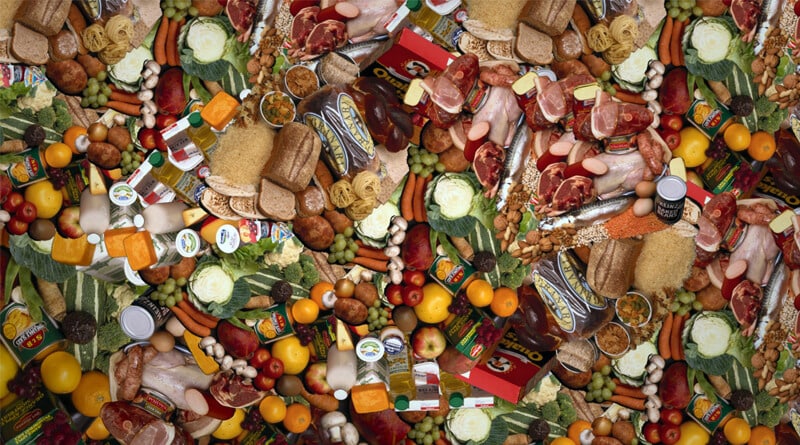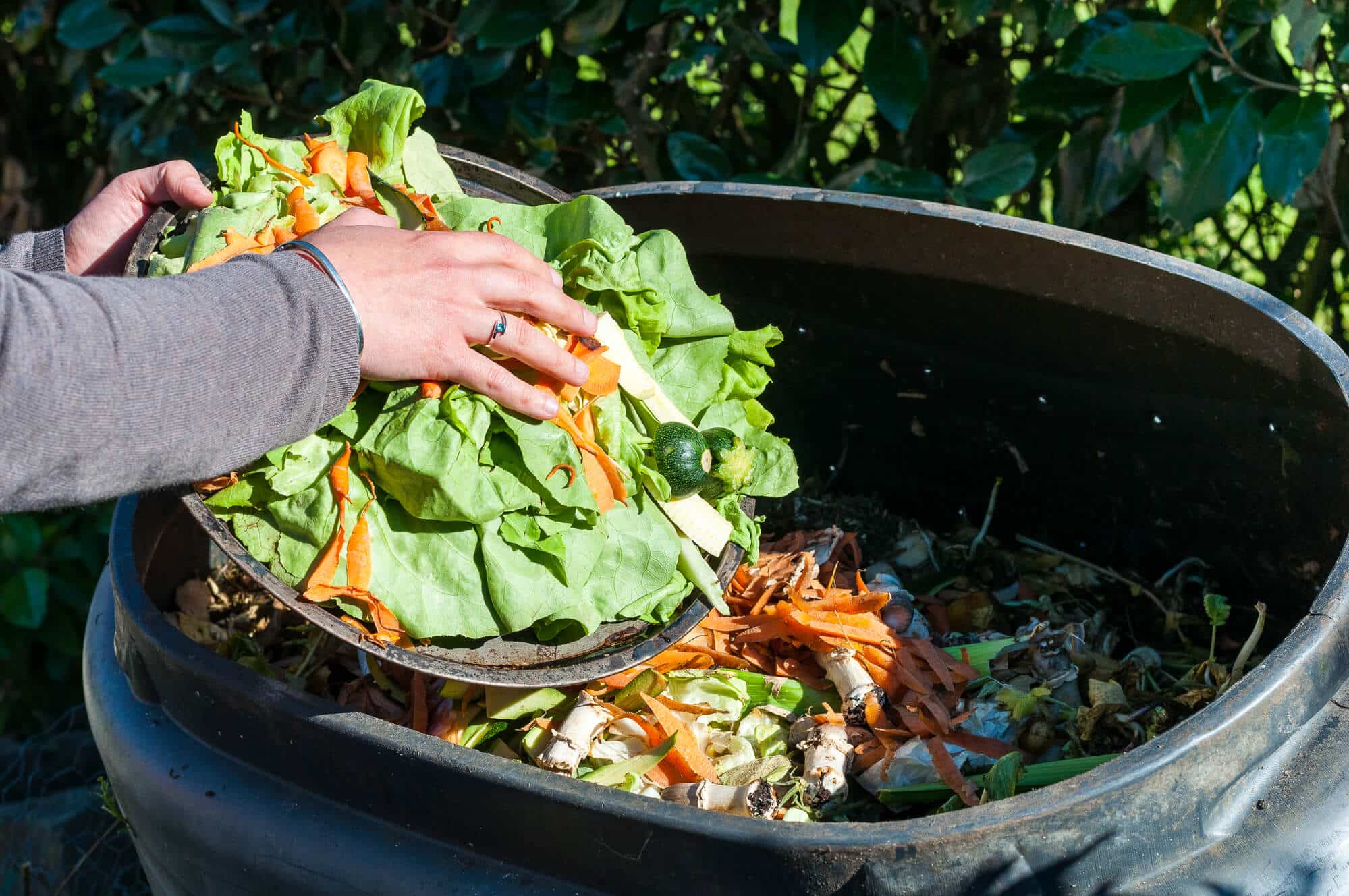It appears that even in this period, full of takeaway deliveries and too frequent trips to the snack drawer, the amount of food we throw in the trash is still much greater than what reaches us here. It's time to change the attitude
By: Sapir Polak, Angle - news agency for science and the environment
Corona crisis caused an additional complication in our complex relationship with food. Many of us have been locked into close relationships with unreasonable amounts of food, which would be considered completely excessive on normal days. Not everyone kept a safe distance of two meters from the refrigerator and put on extra pounds because of it. However, it appears that even in this period, full of take-away deliveries and too frequent trips to the snack drawer, the amount of food we throw in the trash is still much greater than what reaches us in our mouths.
New report of the United Nations Environment Program published this week, deals with global efforts to reduce food waste until 2030. The report shows that in 2019 alone, 931 million tons of food were thrown around the world, with 61 percent of them originating from household waste, 26 percent from the food service industry and 13 percent from the retail industry.
To illustrate, this is a weight equivalent to that of 23 million trucks filled with 40 tons each, which if we arranged them one after the other in a row, they would circle the earth seven times in a row.
Both poor and rich waste food
The negative economic and social implications of producing waste on such massive scales are clear. In the last year alone, in the shadow of panic from the epidemic, the estimates are that About 150 million poor citizens were added around the world, Both due to changes in personal employment status and due to global instability. Therefore, throwing away food at a time when more people are becoming in need of it has become a problem of the first order.

Another surprising figure emerges from the report, according to which the volume of household waste production in the countries examined is similar among groups of all social classes. This means that food waste, surprisingly, is similar both among those with a high income and among those with a low income. However, the amount of food waste that is not edible, such as eggshells or bones, has decreased significantly in the poorer countries, but even in these countries food waste was recorded in high volumes during this period, in a way that goes against common sense.
The current data that appeared in the report is twice as high as the data in other similar reports which were published only a decade ago, which indicates that the importance of the problem was underestimated in the past. The authors of the report emphasized that this is an opportunity to realize that this is a phenomenon relevant to the entire world, and not only to the developing and poor countries.
Impact on the climate crisis
The authors of the report emphasized that beyond economic consequences, consideration should also be given to the environmental aspects of the issue. In this respect, the assumption is that10-8 percent All of the greenhouse gases that are currently emitted into the atmosphere are related to food loss in the food industry or to emissions from unconsumed food.
According to the American organization ReFed, In the US alone, more than a third of the food produced is not eaten at all. This is food whose value reaches161 BILLION DOLLARS, and around the products that are thrown away there is a huge industry that contributes to the waste of natural resources and the loss of huge amounts of water, fertilizers, pesticides and energy. In addition, the carbon footprint created by the food industry in the US is greater than that of the aviation industry by itself, and accounts for about 8 percent of all carbon emissions in the country's territories.
These data have a significant impact on climate change: the energy consumed during the food production process contributes to the emission of carbon dioxide into the atmosphere, and the food that is thrown away and rots produces methane gas, which has a 30 times stronger effect on the greenhouse effect than carbon dioxide (over a 100-year stay in the atmosphere) , Crimson greenhouse gases A dramatic increase in their atmospheric concentration due to human activity disrupts the earth's heat balance and contributes to an increase in temperatures and the acceleration of climate change.

Initiatives that try to reduce waste
So what can be done? In the report, it is noted that there are quite a few strategic actions that can be applied, including raising the issue to the top of the list of priorities of international organizations and foundations. In addition, the UN intends to establish special delegations to deal with the problem in Africa, Asia, Latin America and the Caribbean, where there is less awareness of the problem.
Alongside the global actions, there are those who have chosen to take the reins into their own hands and work to improve the situation within the community. Robin Food Restaurant Haifa, for example, is a good example of this. The association that operates the restaurant works to cultivate relationships with farmers and suppliers in order to reach products before they are thrown away for various reasons, such as the unattractiveness of the raw materials. The purchased products are then taken to the restaurant, where they are prepared into delicious dishes that are sold to customers.
is also The "Food Savers" project In Jerusalem, he is working to lead a change in food consumption patterns in Israel in private households and in markets and restaurants. As part of the project, the activists carry out educational activities, organize community meals based on food that they managed to "save" and operate social catering.
Also the Israeli organization The Natural Step Works to improve the complex situation by offering services and managing processes in the field of sustainability in Israel. Dr. Michal Bitterman, CEO and founder of the organization, says that the issue reflects a problematic mindset: "The whole reference to food is distorted. The Israeli consumer wastes for many reasons: the culture of abundance, confusion due to unclear expiration dates that lead to throwing away normal food, excessively large packaging of products, or promotions that push us items we don't need, and also a lack of dynamic pricing, i.e. lowering prices before a product expires - policy A successful reduction of waste that is currently leading in Italy and France among others".
The most significant problem, Bitterman claims, lies in the low level of awareness and the lack of policy. "There is a need for regulation that would require a national goal of food reduction, this does not exist in Israel," she explains, adding that this can be achieved through various actions, such as prioritizing local agriculture, reducing the range of expiration dates, limiting the throwing away of food by chains, as well as introducing a food donation procedure If necessary.
According to Bitterman, these actions should come alongside various moves at the business level, such as streamlining the field of packaging and making it more economical, and of course alongside actions in the educational aspect. This week, TNS led Israel's "Food Waste Reduction Week", in which it called for the involvement of the younger generation in finding solutions to the problem: "Children tend to indulge and want variety, they also tend to think that food comes from the supermarket and they don't understand how difficult it is to grow a tomato, for example. Therefore - they must be integrated into the change processes".
More of the topic in Hayadan:
